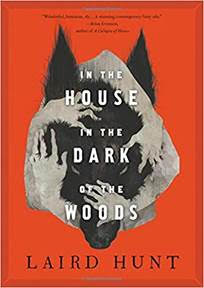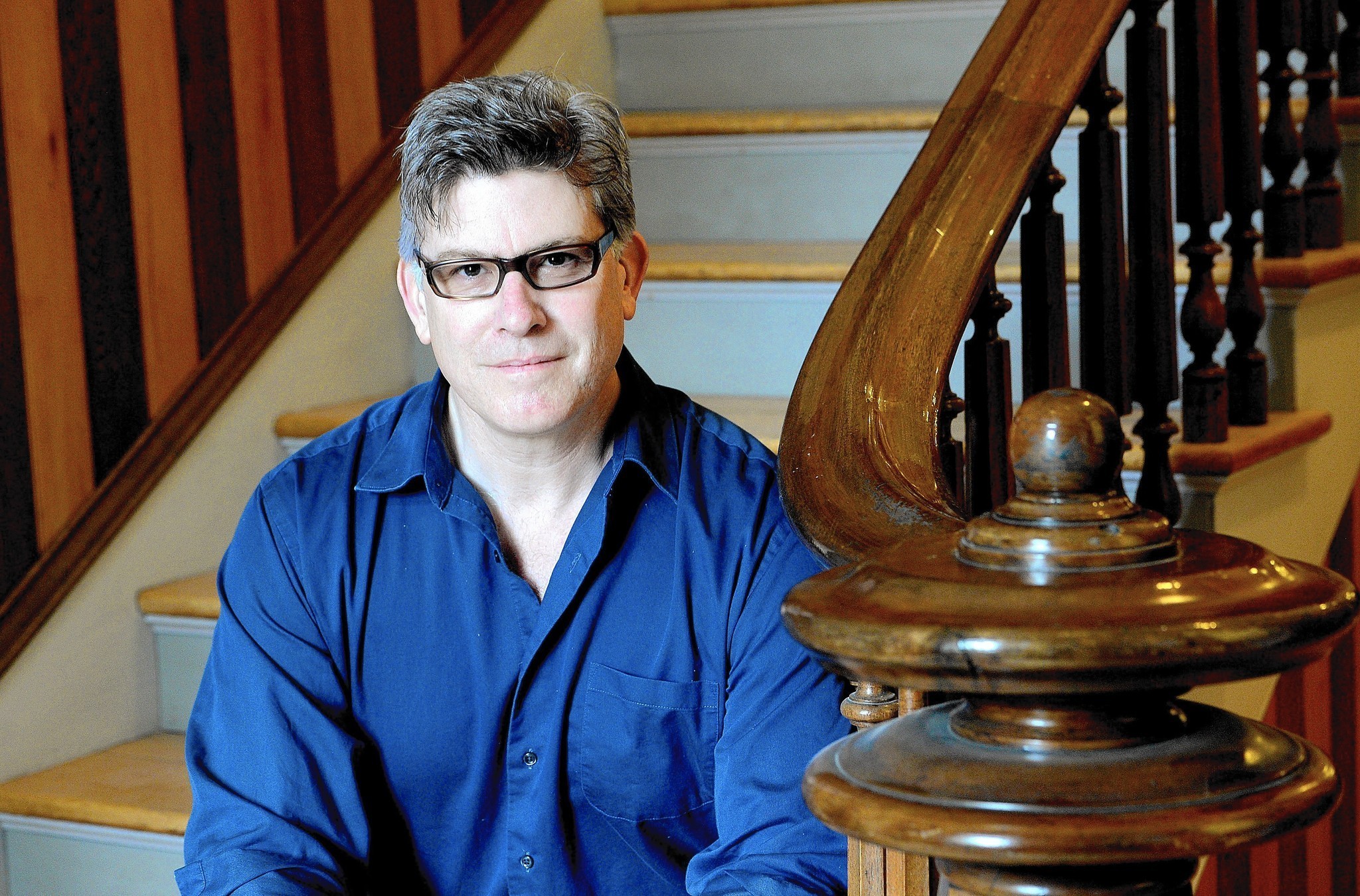Laird Hunt, Wikipedia will tell you, “is an American writer, translator and academic.” True, as far as that goes. But readers of Hunt’s haunted, touched-by-the-fantastical fiction know it goes much deeper, and farther back.
At 48, Hunt’s beard has grayed, and he’s updated his stylish glasses since 2013, when he won an Anisfield-Wolf Book Award for his antebellum novel “Kind One.” Today he describes that work as the beginning of a triptych, which grew to include his mesmerizing Civil War story “Neverhome” and the newly minted “An Evening Road.” This third book unspools in 1930 over a single August day and night in a sweltering rural Indiana that became notorious for a double lynching.
Laird himself was a seventh-grade boy living in London who found himself abruptly transferred to his grandmother’s Indiana farm, about an hour from the spot where 40 years earlier the racist killings in small-town Marion were memorialized in souvenir postcards circulated around the world. Hunt said his family never spoke of these events within his earshot.
Indiana figures in all three novels in the triptych. “I am drawn to stories that are under-told, untold or under-represented in some way,” Hunt told a gathering at the Beachwood branch of the Cuyahoga County Public Library. “All the narrators of these novels are women – perhaps an audacious decision.”
And all these voices are informed by the inflection and character and humorous cast of his grandmother’s speech in her youth. “When she was angry or tired, her accent thickened and she dropped words,” Hunt said. No actual person spoke the way his characters do, “but they are meant to evoke what a 21st-century ear might expect from the past, not a slavish imitation.”
Bobbie Louise Hawkins, a short story writer who mentored Hunt, cautioned him against overdoing the vernacular. Indeed, one of the most dated aspects of “The Red Badge of Courage,” Hunt said, was Hart Crane’s thick hand with dialogue that wound up sounding as if he “stuck a big hayseed in his mouth.”
For “The Evening Road,” Hunt returned to Marion – which he calls Marvel in the novel – for extensive research. The jail from which the lynched men were dragged is still standing. “The jail looks like a medieval castle, with turrets and gargoyles,” he said. “In the ‘80s, it was turned into condos, if you can imagine.”
Hunt managed to enter a side door into the condominium building, now gone slightly to seed, to discover some of the jail’s original tilework and iron gating – “it is really haunting.”
Flannery O’Connor would feel at home here, and her fiction influences Hunt’s. “Strange things occur in all of our minds when we’re telling stories,” he said. In “Neverhome,” the narrator Ash Thompson suggests that she and an African-American woman might share the road for a spell, a preposterous notion in 1862 or 1863. Some sixty years later, the road is still preposterous for the two narrators of Hunt’s most recent novel – one anxious to get to the lynching, one anxious to flee.
Pigs loom in all three books, a creature young Laird smelled often in his rural adolescence. “They just keep appearing,” he mused. “Clearly, something has moved into my psyche. They stay present in my fiction—victimized, repulsed and yet desired.”
Hunt said his novel in progress, centered on witches in the 17th century, already contains a pair of pigs, unsettled and up on their hind legs.


